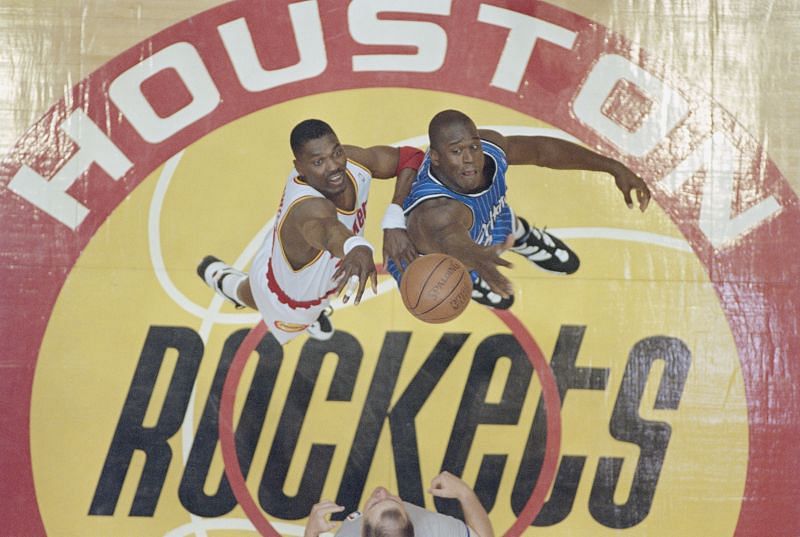
5 Lowest seeds ever to win an NBA championship
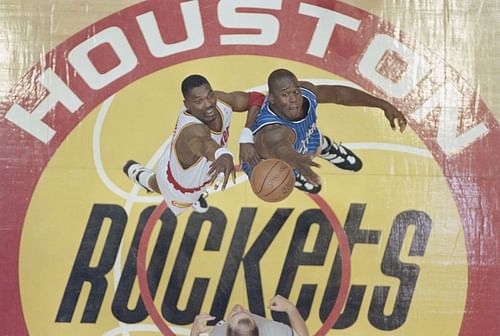
The 2021 NBA championship is up for grabs with LeBron James and the LA Lakers looking to win back-to-back titles against a slew of contenders built to defeat them. But the Purple and Gold have been beset by injuries to key players that have dropped them to the No. 4 seed in the Western Conference.
Could the LA Lakers win the title despite being a No. 4 seed? Or worse, if they drop to six, seven or eight, do they have a shot at winning it all? NBA history may have the answer for us.
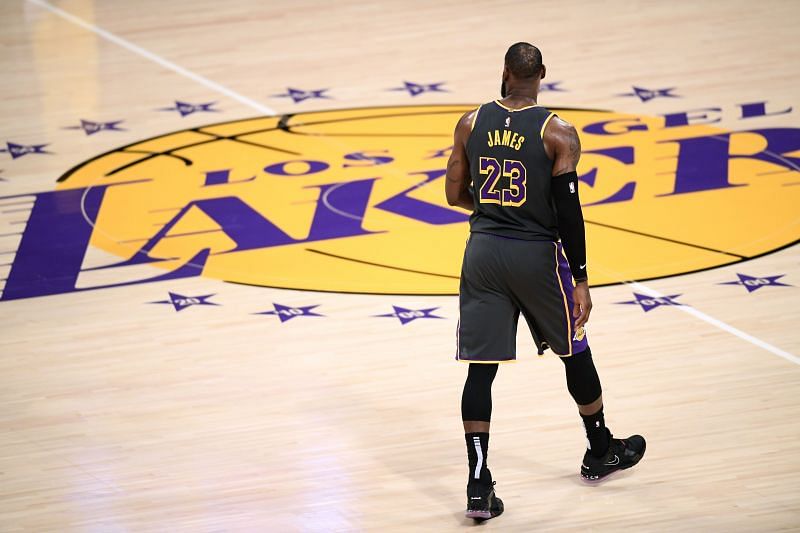
NBA champions and their seedings in history
Out of the 74 NBA champions, most of them have come from the No. 1 (53) and No. 2 (12) seeds. That’s 65 titles between the two seeds and the rest were divided between the third (7), fourth (1) and sixth seeds (1).
As noted, there were seven No. 3 seeds to win the title in NBA history. Here they are in chronological order:
1. 1973 New York Knicks
2. 1977 Portland Trail Blazers
3. 1978 Washington Bullets
4. 2002 Los Angeles Lakers
5. 2004 Detroit Pistons
6. 2007 San Antonio Spurs
7. 2011 Dallas Mavericks
While ranking the 5 lowest seeds to win the title, we decided to pick the three teams that had the stiffest competition in the NBA Finals. It may seem a bit subjective but these are teams that had a difficult path to win the championship based on who they were facing.
5. No. 3 seed: 2011 Dallas Mavericks (57-25)
Defeated No. 2 seed Miami Heat (58-24)
The difference between the 2011 Dallas Mavericks’ record and the Miami Heat’s was only one win but the gap in personnel was huge.
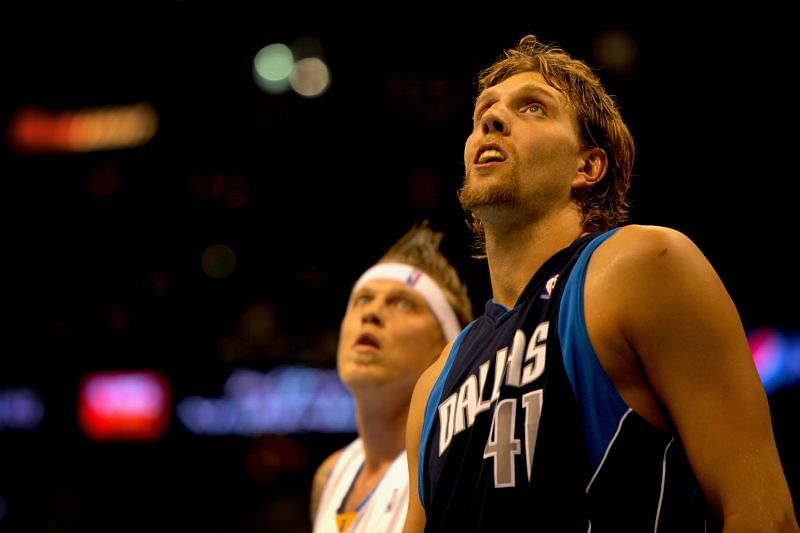
Dirk Nowitzki was the Mavs' undisputed leader along with a soon-to-retire Jason Kidd, who was no longer an All-Star, and a number of very good supporting players. Among them were Jason Terry, J.J. Barea, Caron Butler (who missed the NBA Finals because of an injury), Shawn Marion and Tyson Chandler.
Facing them was a Heat squad led by All-Stars LeBron James, Dwyane Wade and Chris Bosh. Miami were loaded, but after four games in the NBA Finals, the series was tied 2-2.
The Mavs would take over the last two games of the series as Nowitzki outplayed Wade, James and Bosh. Dallas won its first NBA championship ever and it cemented the German-born All-Star as one of the all-time greats.
4. No. 3 seed: 1973 New York Knicks (57-25)
Defeated No. 2 seed LA Lakers (60-22)
The New York Knicks were gunning for their second NBA championship after winning one in 1970. Jerry West, Gail Goodrich and Wilt Chamberlain won their first title together in 1972 and their Lakers were looking to win back-to-back titles. They were a year older but this was essentially the same team that had won an NBA record 33 straight games a season ago.
But Willis Reed, Walt Frazier and Earl Monroe would not be denied. The third-seed New York Knicks were just hungrier and played more like a team than the Lakers did. It wasn’t easy as only Game 5 ended with a double-digit win by Reed and company.
The Finals ended in five games with Bill Bradley, Dave DeBusschere and Jerry Lucas also playing key roles for the Knicks, who had five players average double-figures in the series.
3. No. 3 seed: 2004 Detroit Pistons (54-28 record)
Defeated No. 2 seed LA Lakers (56-26)
Everyone expected the LA Lakers to run roughshod over the Detroit Pistons in the NBA Finals. Shaquille O’Neal, Kobe Bryant, Karl Malone and Gary Payton were future Hall of Famers and they were going up against a no-name Detroit Pistons squad that had All-Stars but no surefire HOFers among them.
But the Pistons had tough-as-nails players in Chauncey Billups, Richard “Rip” Hamilton, Tayshaun Prince, Rasheed Wallace and Ben Wallace. They beat the 61-21 Indiana Pacers in the Eastern Conference Finals to set up a meeting with the Lakers in the championship round.
In the NBA Finals, Detroit won Game 1 on the Lakers’ home floor. Detroit lost Game 2 but then swept the next three games to defeat a team that seemed destined for basketball immortality. Instead, it was the Pistons that earned that distinction as one of only seven teams in history to be a No. 3 seed and win the NBA championship.
Also Check Out: Complete NBA Champions List by year
2. No. 4 seed: 1969 Boston Celtics (48-34 record)
Defeated No. 1 seed LA Lakers (55-27)
Bill Russell was about to retire from a storied career that had already seen him win 10 championships. Ring No. 11 was within sight except they only had the fourth and last playoff spot.
But it seemed unlikely that the Boston Celtics would win the NBA title in 1969 until the playoffs arrived and showed how much pride they still had as a unit. They dismissed their first two opponents 4-1 and 4-2 as though they were the No. 1 seed.
By the time the Finals arrived, it seemed as though they had met their match. The Lakers had Jerry West, Elgin Baylor and Wilt Chamberlain on their roster. Imagine the Celtics’ greatest foes together in one team and it was impossible to believe that they had a chance.
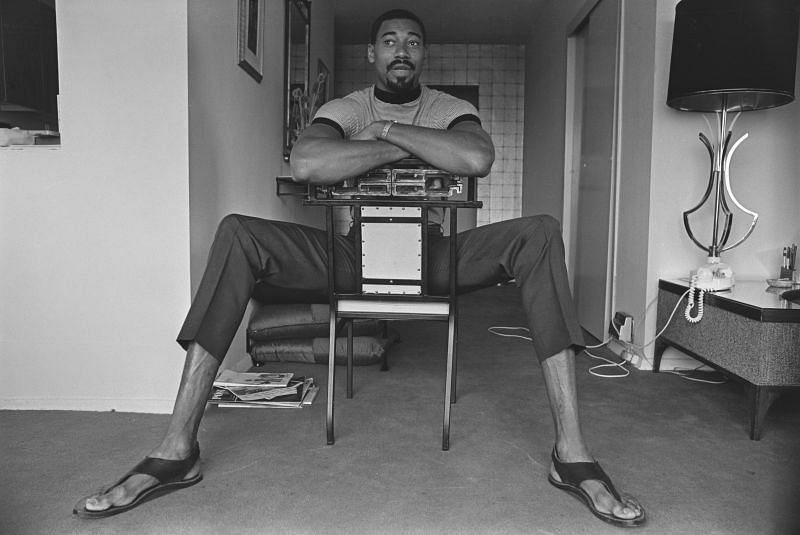
The series went to seven games but Russell and company were determined to win it. Though the home team won Games 1 to 6, Boston prevailed in Game 7 in LA to take home the title and earn their place in history as the only No. 4 seed to win the NBA championship.
1. No. 6 seed: 1995 Houston Rockets (47-35 record)
Defeated No. 1 seed Orlando Magic (57-25)
The 1994-95 season saw the defending champion Houston Rockets descend to the No. 6 seed after being the No. 2 seed the year before to win the title. The core of the team was intact but they needed a jolt.
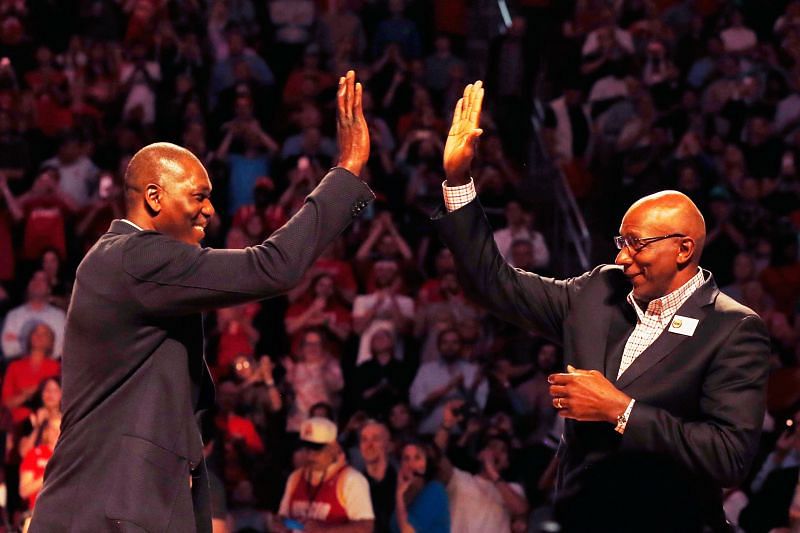
Hakeem Olajuwon was joined by Clyde Drexler in a midseason trade but they still finished just 47-35 with two 50-win teams and two 60-win teams in the Western Conference above them. To win the 1995 NBA title, they had to beat the Utah Jazz (60-22), Phoenix Suns (59-23) and San Antonio Spurs (62-20) to reach the Finals.
Awaiting them in the Finals was the East's No. 1 seed, the Orlando Magic. It was an anticlimactic ending as the Magic fell to the determined Rockets in a 4-0 sweep. No other No. 6 seed or lower had ever won the NBA title before or since, as Olajuwon and Drexler won their first and only championship together.
Also Read: 5 Most disappointing #1 NBA draft picks of all time